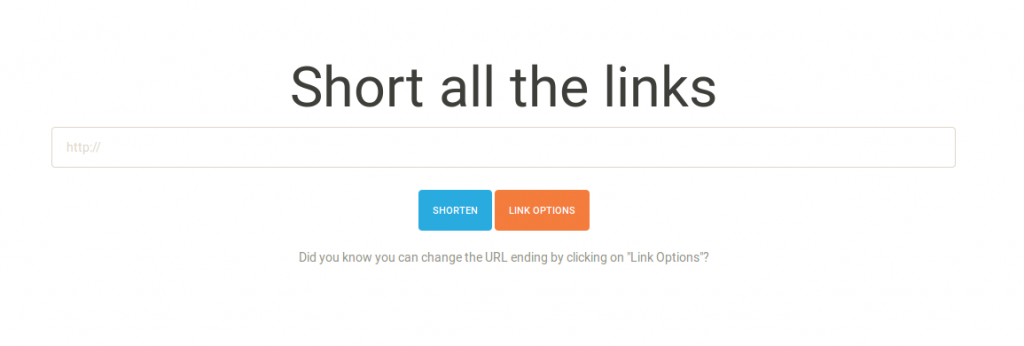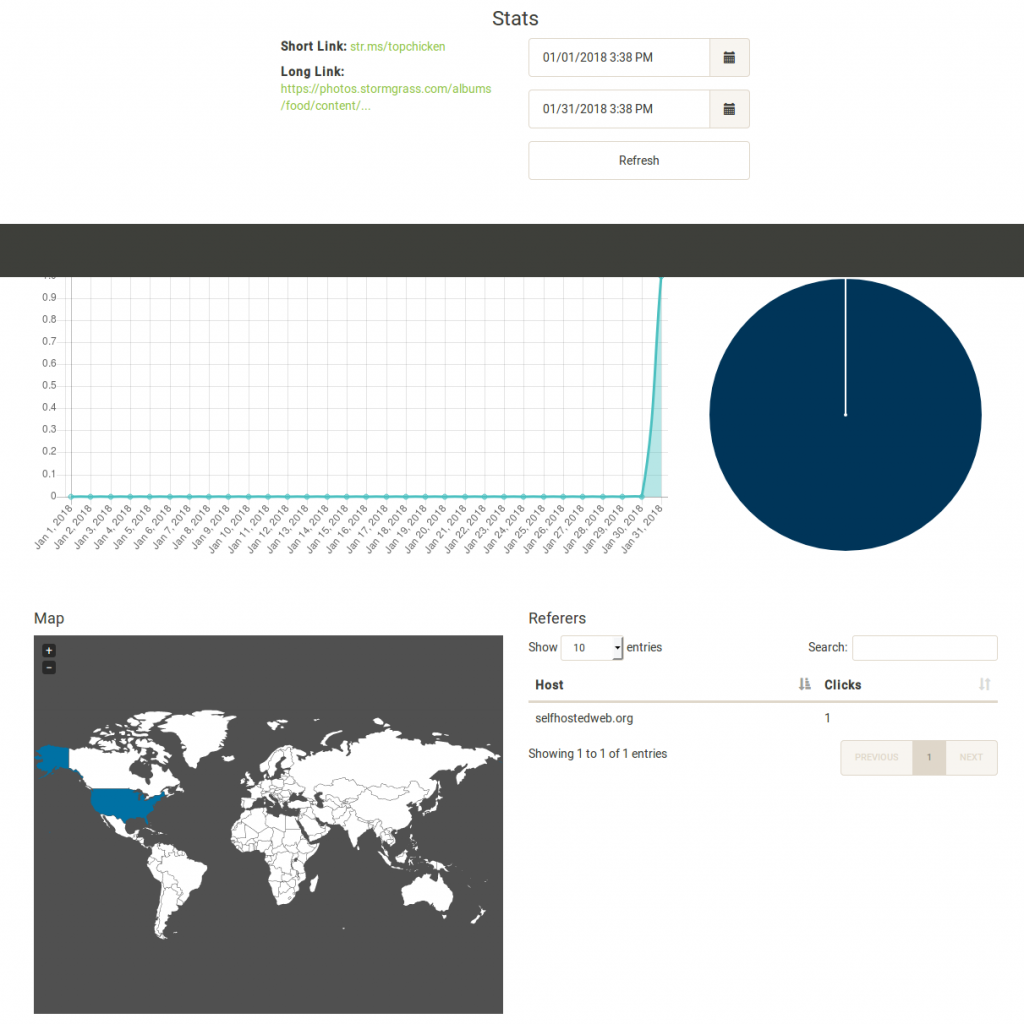If you’ve been around the web for a while, you’re probably familiar with tools that allow you to shorten URLs. They are mainly used on platforms like Twitter, where character limits and readability force you to keep everything short, including your links. And while Twitter by now shortens links internally, for a long time you were well advised to use services like bit.ly or Google’s goo.gl. Then came YOURLS, which gave you the ability to be your own URL-shortener.
I wrote about YOURLS a while back, in the meantime, though, a new contender appeared: Polr.
In a nutshell

Polr allows you to take long links and turn them into shorter ones. It’s self-hosted, rather easy to install and all you need is your own (preferably short domain-name). It creates statistics about your links and can be used both as a private and a public service. It’s free and open-source.
Installation: [rating=5]
Price: [rating=5]
What does it do
Polr takes long links and shortens them for you. All you need is your own short domain-name and with a bit of magic you can create your own short, easy to memorize links.
What are short links useful for, apart from giving you more space on platforms like Twitter? For one, custom endings allow you to create links that are easily memorized or give users a hint as to what they will be seeing when clicking the link.
Here’s an example: I’ve uploaded a picture of a nicely trussed roast chicken to my gallery application. I want to share it with folks, but because of the image being nested into an album and whatnot, the link is huge. I therefore opt to take the link and run it through Polr, choosing to give the link a custom ending. The result then looks like this: https://str.ms/topchicken (go on, click it).

And now, in addition to having created a short lin to my picture, I will also get statistics about how often it was clicked, when it was clicked and where the clicks came from. Handy, isn’t it?
Polr can be used very privately, with no way to register a new account and barring unregistered users from shortening links. It can, on the other hand, be used as an open URL-shortener as well, so if you feel like giving others the option of using it, there’s nothing to stop you from doing so. Do remember, though: once you’ve let others use it, you have a bit of an obligation to keep it running, lest you’d want all those links to be dead at some point. With great power comes great responsibility, as they say.
Finally, if you want to hook up your Polr-installation with FileRun, the self-hosted file-management software I reviewed recently, you can do that easily as well. Polr, like YOURLS, offers an API which allows you to hook it right into any service that knows how to call APIs. For instructions on how to get it to work with FileRun, go here.
Installation
Installation instructions are straight-forward and can be found here. The server requirements are easy to fulfill, it’s basically Apache, MariaDB, PHP and a few extensions, all of which are detailed in the installation instructions.
You can use it with sub-domains as well, but in order for it to be really useful, make sure you find yourself a nice, short domain-name. Domainr is a service that helps you finding those, but if their selection of TLDs is too small for you, just try finding a short domain-name with a two-letter TLD over at, for example, gandi.net.
Price
Polr is open-source and free of charge.
